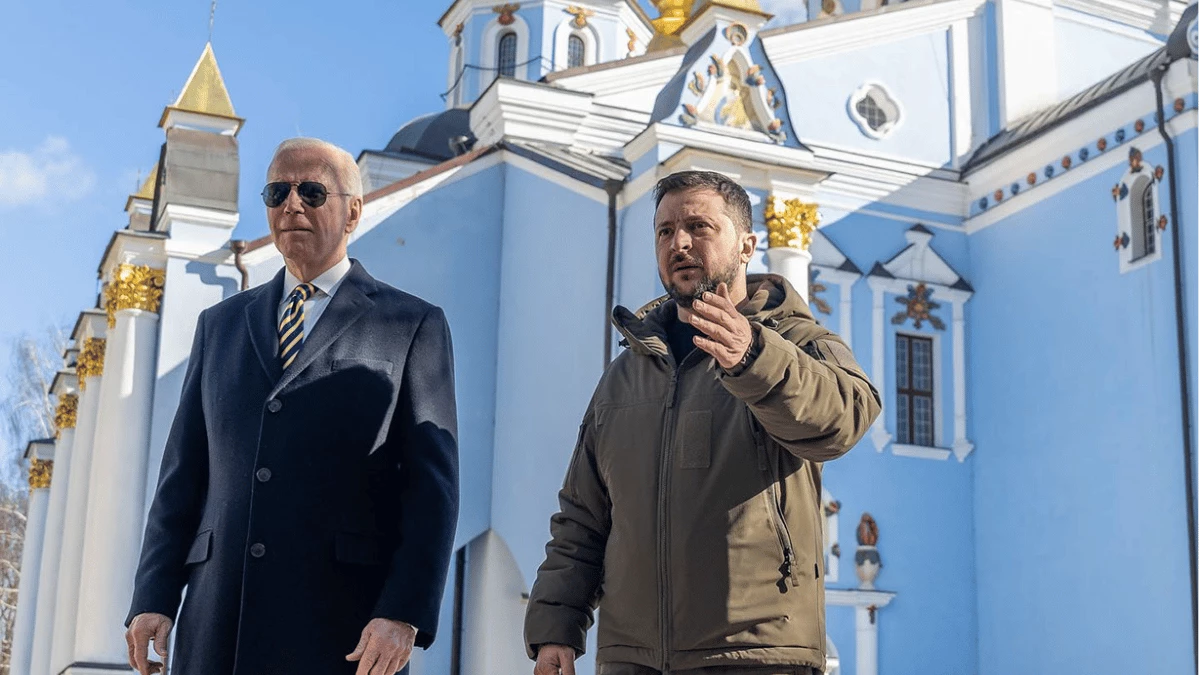Globally, Russia May Actually Not Be Losing the Information War
In the modern digital information era, information wars are always global.

Credit: Wikmedia
Authors
Area of Study
This article was originally published at Tech Policy Press.
Today marks the one-year anniversary of Russia’s full-scale invasion of Ukraine. Since before the first shots were fired, Russia has engaged in a disinformation campaign to justify the war. At first, President Vladimir Putin claimed Russia was saving Ukrainians from their Nazi government (not true). One year later, in his equivalent of a state of the union address this week, Putin reiterated those false claims, contending Russia is the victim and the West is to blame (also not true).
Many commentators say that Russia has lost the information war in Ukraine. Earlier this month, for example, the NATO Strategic Communications Centre of Excellence held an event discussing Russia’s “unsuccessful attempts to legitimize its aggression towards Ukraine both domestically and internationally.”
This may be true in the West. But when looking beyond the United States and the EU, within Russia and several countries in the Global Majority, the picture is much less clear. Indeed, one year after the invasion, Russia may be winning the information war in much of the world.
Russia started laying the groundwork for its invasion before the war even started. Putin claimed the Ukrainian government was corrupt and run by Nazis. He said Ukrainians would welcome Russian soldiers. And besides, he said, Ukraine wasn’t even a real country; this was a territorial dispute best settled internally.
These lies have continued throughout the war. For example, last March Russia claimed the U.S. was funding secret labs to make biological weapons in Ukraine, and this week Putin said Ukraine was seeking to acquire nuclear weapons. After Russia shelled Kharkiv, Ukraine’s second-largest city, Russian state media said Ukraine had actually bombed its own people, and accused the victims of being crisis actors. Russian diplomats later blamed Ukraine for the resulting humanitarian crisis in the city.
Fortunately, the narratives Russia has tried to sow in the West have not only been pre- and debunked by U.S. government officials, they’ve also quickly fallen apart due to on-the-ground reporting and investigations. Indeed, one of the lessons we’ve learned from this war is how hard it is to conceal information when everyday citizens can easily share photos and videos online. If past conflicts have been ruled by quickly spreading false information, quickly spreading true information has ruled this one.
Although Putin’s disinformation campaign has not worked in the West, it has seemingly worked elsewhere.
Start with Russia itself. While Russian public opinion is still largely a black box, reports indicate strong support for the war. In May 2022, 69 percent of Russians said they supported the war, 23 percent opposed it, and 8 percent were unsure, according to a daily survey of Russian public opinion run by Princeton political scientists. In February 2023, 60 percent support the war, 21 percent oppose it, and 19 percent aren’t sure.
From a Western perspective, these results are surprising. Many experts, including me, expected support to drop as the war dragged on and everyday Russians began to feel its effect.
However, despite economic sanctions, an estimated 200,000 soldiers killed or wounded, and 300,000 more civilians drafted into the military, support remains relatively stable.
Why is this the case? Well, the power of propaganda and media control remains strong. Russians largely only learn news from state-controlled outlets, which continue to spread falsehoods about the war. And these narratives likely lead to the typical rally ‘round the flag effect. “The framework of the conflict helped people to come to terms with it,” Denis Volkov, an independent pollster in Moscow, told The New York Times. “The West is against us. Here are our soldiers, there are the enemy soldiers, and in this framework, you have to take sides.”
Even more concerning, however, is that support for Russia remains strong in many areas of the Global Majority. India, for example, has maintained its relationship with Russia and refuses to support additional sanctions. South Africa recently conducted joint military exercises with Russia and China. Despite expressing “deep concern” about the war, China continues to largely stand by Putin. And Russian propaganda has successfully infiltrated many areas in Africa and Latin America.
To be sure, Russian public opinion polls could certainly be wrong. There may be less support for the war domestically than these reports indicate. And it may be that the negative effects from dead soldiers and stalled progress on the battlefield will take years — as opposed to months — to be felt. And while some large nations have not outright denounced the war, the list of countries actively supporting Russia’s war effort — as opposed to simply refusing to suspend economic relations — remains small.
However, based on this evidence, it’s still far too early to say that the West has won, or that Russia has lost, the information war around the invasion. Although the actual physical war on the ground is currently confined to one country, we are continuing to learn that, in the modern digital information era, information wars are always global. Western policymakers would do well to internalize this lesson moving forward.